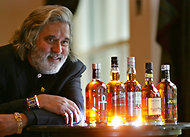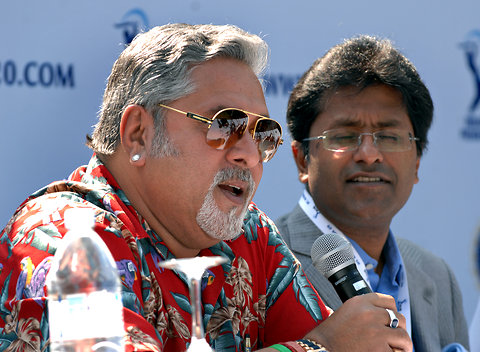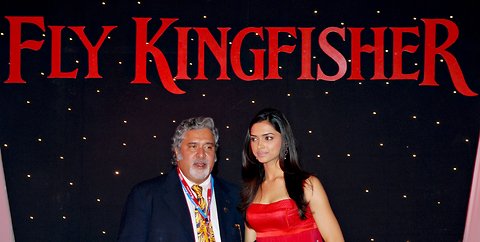Diageo, which is based in London and whose products include Smirnoff vodka and Johnnie Walker Scotch, said its chief operating officer, Ivan M. Menezes, would succeed Paul S. Walsh as chief executive in July. Mr. Walsh, who is credited with turning Diageo into a global company, would stay on for a year before retiring at the end of June 2014.
Under Mr. Walsh, 58, Diageo expanded in faster-growing markets like China to offset dwindling sales in Europe. The company’s share price climbed as its acquisitions won it market share and as he invested in marketing and sales in Asia, Africa and Latin America.
Franz B. Humer, chairman of Diageo, said, “The handover is being made at a time when the business is strong and Ivan takes on the role of chief executive officer at an exciting stage of the company’s global development.”
Mr. Menezes, 53, is expected to continue with Mr. Walsh’s plan to increase growth in markets like Africa, Asia and Turkey, so that the area makes up 50 percent of sales. Sales from those markets now comprise 42 percent of sales.
Mr. Menezes, who was born in India, was directly involved in Diageo’s acquisition of the Brazilian brand Ypioca last year. He also worked with Mr. Walsh on the difficult negotiations to buy a part of Vijay Mallya’s United Spirits in India, the world’s largest whiskey market. Mr. Menezes was widely expected to take over from Mr. Walsh when he was promoted to chief operating officer last year.
“This is a very exciting time of great opportunity for our company,” Mr. Menezes said in a statement. “I look forward to building on the fundamental strengths of our business.”
Diageo generates the largest part of its sales, about a third, in North America, where it recently benefited by raising its prices and increasing its marketing spending. Yet the fastest growing market for the company is South America, where sales increased 18 percent over the last six months of 2012.
After steady growth in earnings, companies like Diageo have begun to be affected by the economic downturn and austerity in Europe, which has constrained consumer spending. Mr. Menezes’s biggest challenge, according to some analysts, will be to ensure that Diageo can continue to win market share in economies where consumer appetite is growing despite growing competition.
“His job number one will be not to allow the foot to come off the pedal of organic growth,” said Martin Deboo, an analyst at Investec. “Then he has to decide what the next chapter of the strategy will be and how best to evolve the portfolio.”
Mr. Menezes arrived at Diageo as the result of a merger. While strategy director at Guinness in 1997, it merged with Grand Metropolitan Public, a British food and beverage company, in the same year to create Diageo.
Mr. Menezes helped to integrate the two businesses and was later named president of Diageo North America. Before Diageo, Mr. Menezes worked in sales, marketing and strategy roles for the consulting firm Booz Allen in the United States and Nestlé in Asia.
In a statement, Mr. Walsh said Mr. Menezes played a pivotal role in making Diageo one of the world’s largest alcoholic-drink companies, which “demonstrates that he is the right person to lead Diageo on the next stage of its journey.”
Article source: http://www.nytimes.com/2013/05/08/business/global/08iht-diageo08.html?partner=rss&emc=rss


